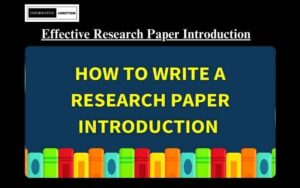I. Introduction
Engaging Readers with the Power of Descriptive Language
Descriptive language has the remarkable ability to captivate readers, painting vivid mental pictures and evoking emotions. At the heart of this linguistic power lies the humble adjective. Adjectives play a crucial role in effective communication, allowing us to create rich and memorable descriptions that engage the senses and leave a lasting impact. In this blog, we delve into the world of adjectives, exploring their significance, usage, and examples that showcase their potential for enhancing storytelling, imagery, and emotional connection.
II. Understanding the Role of Adjectives
Defining the Function of Adjectives in Language
Adjectives are a fundamental part of speech that modify or describe nouns and pronouns. They provide additional information about an object, person, place, or idea, allowing us to convey characteristics, qualities, and attributes with precision and clarity.
The Importance of Adjectives in Creating Vivid Descriptions
Without adjectives, our language would be stripped of color and nuance. Adjectives breathe life into our writing, enabling us to paint a more detailed and vivid picture of the world around us. By carefully selecting and employing adjectives, we can transform ordinary sentences into captivating descriptions that engage the imagination and leave a lasting impression.
Enhancing Storytelling, Imagery, and Emotional Impact with Adjectives
Adjectives serve as the building blocks of compelling storytelling. They bring characters to life, describe the settings, and evoke the atmosphere. Additionally, adjectives play a crucial role in creating sensory imagery, allowing readers to experience the story more intimately. Moreover, adjectives are powerful tools for conveying emotions, enabling us to infuse our writing with the desired mood and sentiment.
III. Examples of Descriptive Adjectives
Exploring a Comprehensive List of Common Descriptive Adjectives
To truly appreciate the versatility of adjectives, we provide a comprehensive list of common descriptive adjectives. This collection encompasses a wide range of categories, including appearance, personality, emotions, and more. By exploring these examples, readers can gain a deeper understanding of the vast possibilities that adjectives offer in enriching their writing and communication.
Showcasing Examples of Adjectives for Appearance, Personality, Emotions, and More
To illustrate the practical application of descriptive adjectives, we showcase specific examples in different contexts. From describing a person’s physical features to capturing their unique character traits or expressing complex emotions, these examples demonstrate how adjectives can add depth, specificity, and color to our language.
Adding Depth and Specificity to Writing and Communication with Adjectives
The examples provided not only serve as a source of inspiration but also highlight the power of adjectives in enhancing our writing and communication. By incorporating well-chosen adjectives, we can elevate our descriptions, making them more engaging, memorable, and impactful.
IV. Enhancing Writing with Adjective Usage
Painting Vivid Mental Pictures with Well-Chosen Adjectives
The careful selection of adjectives enables us to paint vivid mental pictures in the minds of our readers. We explore techniques for choosing adjectives that are precise, evocative, and sensory, ensuring our descriptions transport the reader into the heart of the narrative or subject matter.
Techniques for Selecting Effective Adjectives for Desired Impact
Selecting the most effective adjectives requires thoughtful consideration. We discuss techniques such as observing and reflecting on the qualities we wish to convey, employing figurative language, and utilizing specific or comparative adjectives to create a desired impact. By understanding the nuances of adjective usage, we can craft descriptions that resonate with readers.
Striking the Right Balance: Enhancing Descriptions Without Overloading Text
While adjectives can enrich our writing, it is essential to strike a balance and avoid overloading the text with excessive adjectives. We provide strategies for maintaining a balanced approach, ensuring that our descriptions remain concise, focused, and impactful. By employing moderation and considering the overall flow of the writing, we can maximize the effectiveness of our adjective usage without overwhelming the reader.
V. Adjectives in Different Writing Styles
A. Utilizing Adjectives in Narrative Writing: Creating Immersive Experiences
In narrative writing, adjectives play a pivotal role in immersing readers in the story. We explore how adjectives can create vivid settings, dynamic characters, and sensory experiences that transport readers into the world we’ve crafted. Through well-placed and evocative adjectives, we can captivate readers and make our narratives come alive.
B. The Role of Adjectives in Persuasive and Argumentative Writing
Influencing Perspectives In persuasive and argumentative writing, the careful selection of adjectives can significantly impact the reader’s perception and perspective. We examine how adjectives can be used strategically to sway opinions, evoke emotions, and strengthen arguments. By harnessing the persuasive power of adjectives, we can make a compelling case and leave a lasting impression.
Setting the Tone and Atmosphere: Adjectives in Various Genres
Different genres require different tones and atmospheres to engage readers effectively. We discuss how adjectives contribute to setting the desired tone and atmosphere in genres such as mystery, romance, science fiction, and more. By choosing adjectives that align with the genre’s conventions, we can establish the appropriate mood and immerse readers in the intended literary experience.
VI. Adjective Usage in Everyday Communication
The Impact of Adjectives in Everyday Conversations:
Expressing Emotions and Opinions Adjectives are not confined to the realms of literature; they are also powerful tools for everyday communication. We explore how adjectives can be used to express emotions, opinions, and experiences in our conversations. By choosing the right adjectives, we can effectively convey our feelings and viewpoints, fostering better understanding and connection with others.
Examples of Using Adjectives to Convey Experiences and Descriptions
From sharing our travel adventures to describing the taste of food or the ambiance of a place, adjectives allow us to vividly communicate our experiences. We provide real-life examples of how adjectives can bring life and color to our descriptions, making our storytelling more engaging and relatable.
Choosing the Right Adjectives for Accurate and Effective Communication
Accuracy is crucial in communication, and selecting the right adjectives is essential to ensure our message is conveyed accurately. We discuss the importance of context, precision, and sensitivity when choosing adjectives. By being mindful of the impact our words have on others, we can foster effective and empathetic communication.
VII. Harnessing the Power of Adjectives in Marketing and Advertising
Influencing Consumer Perception: How Adjectives Shape Brand Image
Adjectives play a pivotal role in marketing and advertising, shaping consumer perception of products, services, and brands. We delve into how carefully selected adjectives can create a brand image that resonates with the target audience, highlighting the importance of using descriptive language strategically to influence consumer behavior.
Effective Strategies for Using Adjectives in Compelling Marketing Copy
Crafting persuasive marketing copy requires a keen understanding of how adjectives can captivate and engage consumers. We provide strategies for effectively utilizing adjectives in headlines, product descriptions, slogans, and calls to action. By employing adjectives strategically, marketers can create compelling messages that resonate with their target market.
Successful Examples of Adjective Usage in Advertisements
We showcase successful examples of adjective usage in advertisements, examining how renowned brands have leveraged descriptive language to create memorable and impactful campaigns. By analyzing these examples, readers can gain insights into the power of adjectives in marketing and advertising, inspiring them to apply similar techniques to their own promotional efforts.
VIII. The Art of Balancing Adjective Usage
The Importance of Moderation: Avoiding Overuse of Adjectives
While adjectives can enhance our writing, it is crucial to exercise moderation to avoid overwhelming the reader. We discuss the importance of striking a balance between descriptive language and readability, encouraging writers to use adjectives judiciously and consider the overall impact on the reader’s experience.
Techniques for Avoiding Repetitive or Clichéd Adjective Usage
Repetitive or clichéd adjective usage can diminish the impact of our writing. We provide techniques for avoiding such pitfalls, including exploring synonyms and alternative descriptive approaches, incorporating varied language, and seeking feedback from others. By continuously refining our adjective usage, we can ensure our writing remains fresh, engaging, and authentic.
Striking the Right Balance: Maintaining Descriptive Language and Readability
The ultimate goal of balancing adjective usage is to maintain descriptive language without sacrificing readability. We offer practical tips and suggestions for achieving this delicate equilibrium, such as prioritizing strong nouns and verbs, using descriptive phrases instead of relying solely on adjectives, and editing with a critical eye for conciseness and clarity. By honing our writing skills, we can create powerful and engaging content that strikes the perfect balance.
IX. Conclusion
Significance of Descriptive Language and Adjective Usage in Communication
Descriptive language, fueled by the power of adjectives, holds immense significance in effective communication. It allows us to express ourselves vividly, engage readers’ senses, and create lasting impressions. By embracing the art of descriptive language, we open up new avenues for connection, understanding, and engagement in our personal and professional interactions.
The Power of Adjectives in Creating Engaging and Vivid Expression
Throughout this blog, we have explored the multifaceted role of adjectives in enhancing our writing, storytelling, and everyday conversations. Adjectives hold the power to transform mundane descriptions into vibrant, memorable experiences. By harnessing this power, we can captivate audiences, evoke emotions, and convey our messages with depth and impact.
Embracing the Art of Effective Adjective Usage in Writing and Everyday Conversations
As we conclude, we encourage readers to embrace the art of using adjectives effectively. Whether crafting compelling narratives, engaging in meaningful conversations, or developing persuasive marketing campaigns, the careful selection and skillful use of adjectives can elevate our communication to new heights. By expanding our vocabulary, honing our descriptive skills, and approaching adjective usage with intention, we unlock the true potential of language and connect with others in profound ways.\
Connect with Informative Junction
Click Here if you want to read more Interesting Blogs.




